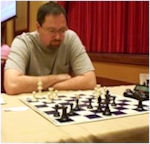Just a brief recap of my experience: I first started using xPAP in June. So just a few months ago. I don't know how long I've suffered from the symptoms. Probably for years, but over the previous year, the symptoms had gotten very obvious to me (like I would wake up gasping for air.) I didn't have health insurance, but I found a practitioner to write me a script for the APAP machine, which I finally got in June and started using. I saw instant results with my quality of life and quality of sleep.
After some trial and error, I've lately been using CPAP pressure of 7 and getting an AHI anywhere between 2-5.
So, over the past several weeks, I've felt uncomfortable at that pressure, so I set my xPAP back to Auto mode and put the range from 4.5 to 20 to see if I needed to make some adjustments. Most nights, the pressure stays at 4.5. And the AHI is showing 1 to 2. (Which my machine seems to count awake breathing as A/H events, and I end up wearing my machine for quite some time while awake.) One night, it did go up to 7.5 with an AHI of 1. As part of this self study I have slept a couple of nights without the machine. One night, I did have some light snoring. But otherwise, I can't tell any difference in my quality of sleep with or without the machine.
So, what has gone on since June?
Well, since March, I have lost 80+ pounds (about 35 of it since June.) I have also been diagnosed with rheumatoid arthritis (which can cause lung/breathing issues.) I've been treating that with anti-inflammatory medication. So, I think either of those things might be relevant, if my need for CPAP is being reduced. As a HAES (health at every size) supporter, I am the last person to say I have this condition because I'm fat. I know that something like 30% of SA sufferers are in the "normal" weight range.
I think it's insulting and ignorant to blame someone's medical conditions on their size. Like my RA, for example. I hear a lot that it wouldn't get so bad if I was thinner. But I know I don't have RA because of my size. I have it because my dad has it. He has an extremely severe case of RA and he has been rail thin all his life. But, I think structurally, body size may sometimes play a roll in certain things.
There's my situation. Now I have a question.
I don't care how imperative it is and how much of a life or death situation, I still don't have insurance and I still don't have thousands of dollars for a sleep study. So, even if it meant I'd drop stone dead tomorrow, that's not gonna happen. I don't need anyone to tell me how stupid I am because I'm trying to solve my medical problems on my own. I am a person doing the best i can. If that's stupid to you then, please keep it to yourself. If you get disgusted with people not following some exact protocol then, complaining because they aren't getting the results they expect, then by all means, don't answer.
My question is, if I was going to spend the money on a diagnostic tool to help me figure this out, where would the smart money be? I was thinking I could possibly buy the software module that goes with my machine to see how I'm having events at night. Or, how about a ... one of those oxygen sensor things that records desaturation or whatever. Y'all know what I'm talking about. I read about them all the time.
Whatever I do, it's going to be grocery money I'm spending. I want to make the most efficient choice I can. Which of those or what other items would you suggest to help me figure this out?
Thanks.
Cassandra
When Size Does Matter
When Size Does Matter
_________________
| Mask: Opus 360 Nasal Pillow CPAP Mask with Headgear |
| Humidifier: IntelliPAP Integrated Heated Humidifier |
- pagebypage
- Posts: 58
- Joined: Tue Sep 01, 2009 5:18 pm
- Location: portland, or
Re: When Size Does Matter
Congratulations on your weight loss and success with osa. A correlation between osa and being overweight is frequently mentioned, but which came first. Even though I am in the so-called "normal" weight range ( I could stand to lose 25 lbs, but my MD says I don't), I sense that obesity is a side effect of osa, and that your successes have helped with the other strategies you have employed.
It sounds to me like you were doing well with cpap set at 7.
I was put on an apap for a kind of mini-study for a few weeks and found that when I sleep on my back, whether cpap or apap, I snore with apneas that don't get corrected. On apap, the machine the machine jumped to 8 when on my back, but I still got the apneas and the snoring. I make every effort, consciously, subconsciously, unconsciously, to not sleep on my back. I started out at 7 four+ years ago, was raised to 8 two years ago, and with this mini-study, I was lowered to 6.5 with the assumption that I wouldn't sleep on my back anymore. That has worked for me.
Sleep position significantly effects how well cpap will work for you. This might be more important than trying to chase perfection. Again, if it were me, I would save my money and go back to cpap at 7, which seemed to be optimum for you, and evaluate sleep position.
It sounds to me like you were doing well with cpap set at 7.
I was put on an apap for a kind of mini-study for a few weeks and found that when I sleep on my back, whether cpap or apap, I snore with apneas that don't get corrected. On apap, the machine the machine jumped to 8 when on my back, but I still got the apneas and the snoring. I make every effort, consciously, subconsciously, unconsciously, to not sleep on my back. I started out at 7 four+ years ago, was raised to 8 two years ago, and with this mini-study, I was lowered to 6.5 with the assumption that I wouldn't sleep on my back anymore. That has worked for me.
Sleep position significantly effects how well cpap will work for you. This might be more important than trying to chase perfection. Again, if it were me, I would save my money and go back to cpap at 7, which seemed to be optimum for you, and evaluate sleep position.
- brain_cloud
- Posts: 430
- Joined: Fri Oct 02, 2009 7:07 pm
Re: When Size Does Matter
Cassandra wrote: My question is, if I was going to spend the money on a diagnostic tool to help me figure this out, where would the smart money be? I was thinking I could possibly buy the software module that goes with my machine to see how I'm having events at night. Or, how about a ... one of those oxygen sensor things that records desaturation or whatever. Y'all know what I'm talking about. I read about them all the time.
Whatever I do, it's going to be grocery money I'm spending. I want to make the most efficient choice I can. Which of those or what other items would you suggest to help me figure this out?
Thanks.
Cassandra
Hi Cassandra,
I really recommend an oximeter that can store data. I find it an extremely helpful tool, nearly as useful as the cpap software data. You can find these on ebay and no doubt other places. The cheaper sort (like I got) tend to be Chinese and around $120-$150 for new. You could probably find a pre-owned one cheaper than that. Make sure it is the type that has software for your PC and stores data. One of these plus the software from your cpap machine (I don't see how you could get around having to get that too) should give you plenty of information to figure things out, provided you go about things in a systematic manner. Spreadsheet Heaven.
_________________
| Mask: Mirage Quattro™ Full Face CPAP Mask with Headgear |
| Humidifier: HumidAire H4i™ Heated Humidifier |
Re: When Size Does Matter
Cassandra...I agree...an oximeter should do it for you. Congrats on your weight loss too! That's awesome.
Glad you're going to monitor yourself somehow and are not just quitting CPAP blind. Let us know how it works out.
Glad you're going to monitor yourself somehow and are not just quitting CPAP blind. Let us know how it works out.
_________________
| Mask: Swift™ LT For Her Nasal Pillow CPAP Mask with Headgear |
| Humidifier: HumidAire H4i™ Heated Humidifier |
| Additional Comments: Pressure - 8. Started CPAP therapy 5.20.2009. Use PapCap. |
"Knowledge is power."
- Scarlet834
- Posts: 310
- Joined: Sun Sep 06, 2009 12:24 pm
- Location: California
Re: When Size Does Matter
I agree with everyone's suggestions about the oximeter, although I don't have one myself. That ought to give you some assurance whether you've optimized your treatment.
You mentioned not being able to tell the difference in your sleep quality at different settings. I don't think you said whether that quality was good or bad? I gathered that you are now uncomfortable at a setting of 7. I've read that the pressure setting is dependent on how much air pressure it takes to keep your airway open. If you've lost significant weight (good for you!) it's very possible that the pressure needed today is less that 7 cm. Theoretically it's possible to change your physical structure enough to no longer need CPAP, but I'd want to be very, very certain before jumping to that conclusion and stopping treatment. I believe a setting of 4 is considered to be "no treatment". I have trouble breathing at that setting, but it might serve as a diagnostic tool for you so you would get readings, as opposed to relying purely on how you feel the next day sleeping without CPAP. You have the oximeter, but if your sleep is disturbed by apnea events that aren't associated with oxygen desaturation, the oximeter won't tell you that.
You might consider switching back to straight CPAP starting at 6.5 and decreasing the pressure 0.5 cm at a time, for maybe a week at a time, and tracking those results. That's probably what I'd do given your previous great results with a straight setting of 7.
You mentioned not being able to tell the difference in your sleep quality at different settings. I don't think you said whether that quality was good or bad? I gathered that you are now uncomfortable at a setting of 7. I've read that the pressure setting is dependent on how much air pressure it takes to keep your airway open. If you've lost significant weight (good for you!) it's very possible that the pressure needed today is less that 7 cm. Theoretically it's possible to change your physical structure enough to no longer need CPAP, but I'd want to be very, very certain before jumping to that conclusion and stopping treatment. I believe a setting of 4 is considered to be "no treatment". I have trouble breathing at that setting, but it might serve as a diagnostic tool for you so you would get readings, as opposed to relying purely on how you feel the next day sleeping without CPAP. You have the oximeter, but if your sleep is disturbed by apnea events that aren't associated with oxygen desaturation, the oximeter won't tell you that.
You might consider switching back to straight CPAP starting at 6.5 and decreasing the pressure 0.5 cm at a time, for maybe a week at a time, and tracking those results. That's probably what I'd do given your previous great results with a straight setting of 7.
_________________
| Mask: Swift™ LT For Her Nasal Pillow CPAP Mask with Headgear |
| Additional Comments: Encore Pro 2.2 |
Re: When Size Does Matter
Thanks for the replies, everyone. I'm reading and processing... I'm going to start looking for an oximeter now, though depending on the price, I may not be able to get one this week.
My quality of sleep has been, I would say... "good." I haven't been waking up with that feeling of having bricks on my chest. Nor have I been getting the splitting headaches that I was getting when my apnea was so obvious. The quantity hasn't been great. But getting 5 or 6 hours of "good" sleep beats getting 13 hours of "bad" sleep any day.
Slowly reducing the pressure may be worth a shot. The setting of 7 has begun to feel sort of strangling... like I'm hanging my head out the car window. A setting of 9 used to feel like that, while I could be comfortable at 8 or below. And 7 was very comfortable and didn't feel like that at all until just recently. That's what made me think something must have changed, and maybe my pressure needs are different than they used to be.
Cassandra
My quality of sleep has been, I would say... "good." I haven't been waking up with that feeling of having bricks on my chest. Nor have I been getting the splitting headaches that I was getting when my apnea was so obvious. The quantity hasn't been great. But getting 5 or 6 hours of "good" sleep beats getting 13 hours of "bad" sleep any day.
Slowly reducing the pressure may be worth a shot. The setting of 7 has begun to feel sort of strangling... like I'm hanging my head out the car window. A setting of 9 used to feel like that, while I could be comfortable at 8 or below. And 7 was very comfortable and didn't feel like that at all until just recently. That's what made me think something must have changed, and maybe my pressure needs are different than they used to be.
Cassandra
_________________
| Mask: Opus 360 Nasal Pillow CPAP Mask with Headgear |
| Humidifier: IntelliPAP Integrated Heated Humidifier |
Re: When Size Does Matter
Cassandra, I went from 11 to 9 after losing 53#s; my sleep doc still thinks my OSA will disappear along with the excess wt (gotta lot to lose yet). I finally have the AutoSet II I've been lusting after (tonite will be 3rd night) running at 6-15 and I do sleep so much better on APAP (has EPR set to 1). Like you, my funds are extremely tight...if it were me, I'd sleep with APAP running 4-9 or so and see what happens...that's if you sleep well with APAP. If I could gather the funds, I'd get for the recording oximeter and see how my O2 levels were with and without CPAP therapy.
Good luck and keep us posted!
Good luck and keep us posted!
_________________
| Mask: Hybrid Full Face CPAP Mask with Nasal Pillows and Headgear |
| Humidifier: HumidAire H4i™ Heated Humidifier |
| Additional Comments: Started Aug '07 CPAP Escape at 11 then 9, S9 APAP range 9.8-16, now 10-17 |
ResMed S9 range 9.8-17, RespCare Hybrid FFM
Never, never, never, never say never.
Never, never, never, never say never.
Re: When Size Does Matter
Hi Cassandra. Congrats on the weight loss, and on all you've been able to accomplish as your own OSA treatment advocate. I have re-read your posts several times because I keep feeling like I'm missing something. Bear with me as I try to talk my way through it, though I'll probably have more questions than answers.
First, I'm trying to understand your recent sensation of discomfort. I've used several pillows style masks, and when they are properly seated and sealed, I can't even tell the air is on. Ok, here come the questions...
...I can't imagine a weight loss would affect the size of one's nares, and thus the best pillow size, but - does your nose look any different?
...Any chance your pillows are worn and no longer holding the seal?
...Does your machine show your leak rate?
...Are you certain there's no mouth leaking going on?
...What is the minimum pressure required by your mask to vent properly?
Guess I'm wondering if something besides your weight loss comes into play, and if so, how reliable are your AHI readings? For my money, I think I'd want the software and module package, which is under $150 from our host. And if I were playing around with my numbers, I'd probably try a range starting at 5 or 5.5 just because I am highly suspect of anything lower having any value. Just using a ramp of 4 nearly did me in. I would experiment with back vs side sleeping and compare the numbers. I think the means some members use of wearing a backpack to assure side sleeping would be what I'd try if I were doing this experiment. If your AHI is zilch with a couple weeks of side sleeping, then maybe lower the pressure in .5 increments.
Hey, we all have opinions, just let us know what you decide to do and how it is working for you. Best wishes.
Kathy
First, I'm trying to understand your recent sensation of discomfort. I've used several pillows style masks, and when they are properly seated and sealed, I can't even tell the air is on. Ok, here come the questions...
...I can't imagine a weight loss would affect the size of one's nares, and thus the best pillow size, but - does your nose look any different?
...Any chance your pillows are worn and no longer holding the seal?
...Does your machine show your leak rate?
...Are you certain there's no mouth leaking going on?
...What is the minimum pressure required by your mask to vent properly?
Guess I'm wondering if something besides your weight loss comes into play, and if so, how reliable are your AHI readings? For my money, I think I'd want the software and module package, which is under $150 from our host. And if I were playing around with my numbers, I'd probably try a range starting at 5 or 5.5 just because I am highly suspect of anything lower having any value. Just using a ramp of 4 nearly did me in. I would experiment with back vs side sleeping and compare the numbers. I think the means some members use of wearing a backpack to assure side sleeping would be what I'd try if I were doing this experiment. If your AHI is zilch with a couple weeks of side sleeping, then maybe lower the pressure in .5 increments.
Hey, we all have opinions, just let us know what you decide to do and how it is working for you. Best wishes.
Kathy
_________________
| Mask: TAP PAP Nasal Pillow CPAP Mask with Improved Stability Mouthpiece |
| Humidifier: S9™ Series H5i™ Heated Humidifier with Climate Control |
| Additional Comments: Bleep/DreamPort for full nights, Tap Pap for shorter sessions |
My SleepDancing Video link https://www.youtube.com/watch?v=jE7WA_5c73c














